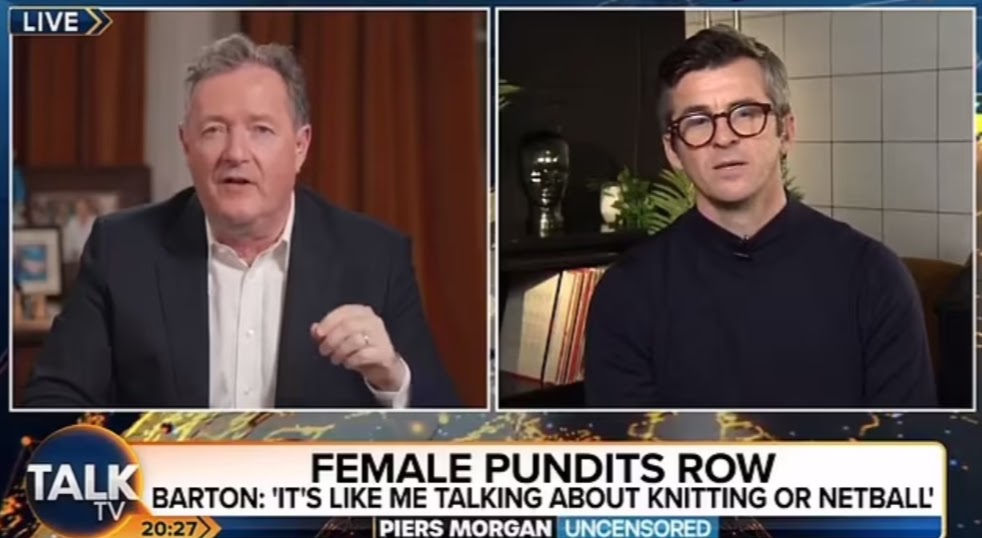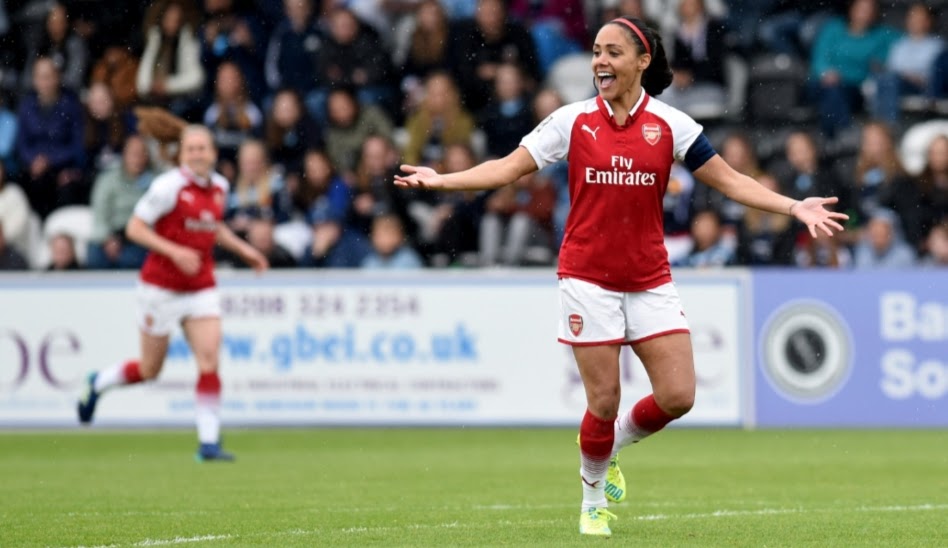Joey Barton, former English midfielder and more recently manager of league one side Bristol Rovers has spoken out about female coverage of the men’s game. Having played a total of 386 senior games, for teams such as Manchester City, Newcastle United and Burnley, you would expect someone of his position to have at least some degree of understanding of football as a game. Clearly experience isn’t always everything.

Serving two sentences for violent conduct, a ban from football for betting against his own team, and gathering more cards (84) than wins (83) in his Premier League career… I suppose an unprovoked attack on women in football shouldn’t have caught us off guard in the way it has.
This latest series of misogynistic and ignorant dismissals started on X, where Barton instigated what would develop into a 12 hour rant, posting:
“Women shouldn’t be talking with any kind of authority in the men’s game. Come on. Let’s be serious. It’s a completely different game. If you don’t accept that. We will always see things differently. The women’s game is thriving. Fantastic to see. I cannot take a thing they say serious in the men’s arena.”
This has inevitably triggered volatile reactions from both sides of the argument. He compared female punditry to him talking about “Knitting or Netball. Something way out of my comfort zone”, heavily implying that as a women, we could never comprehend what it is like to be involved in the men’s game; that for us to commentate, report on or cover a game, we must be out of our depth and uninformed.

Who was going to tell Joey that to have an insight on a game, you don’t have to have played the full 90 yourself, that there are male presenters who have never stepped foot on the pitch professionally, and that punditry is centralised around the concept of comparing and offering opinions?
There will very rarely be a matter in the game that the entire football fan base agrees on, so who determines who’s opinion is valid and whose opinion isn’t? The last time I checked, gender wasn’t the deciding factor.
Barton, unsatisfied by his attack launched on social media, made an appearance on Piers Morgan’s talk show, continuing to state that his argument wasn’t formulated around a disregard for women but rather, being “against tokenism and poor journalistic standards”.

When questioned about his use of language, he proceeded to carry on with “That’s what these platforms are used for and it’s used for debate.I don’t want to see sexism in football. But if we don’t talk about and debate this properly it’s just going to further rise and ruin the experience of watching elite-level men’s football.”. He expanded with;
“everywhere you turn now there’s an unqualified opinion commentating and pontificating about the sport I love, it’s ruining my experience and it’s all to fuel this woke agenda. And if we’re not careful, sexism will rise. It has to be a meritocracy to get people qualified to do these roles.”
I can accept people having an opinion, I can accept their opinion being different to mine. I am prepared to be understanding of the fact that, for some people, they prefer to hear a male opinion on the men’s game, however…
To claim these women who are at the forefront of our coverage are only there to make up the numbers, and “unqualified” is just, in the eyes of complete transparency, wrong. To make my point I’d like to compare Barton, who sees himself as fit to publicise his views on games, against Alex Scott.

Alex Scott, former professional footballer and England international has a career composed of 218 senior club appearances, and 140 England caps. She began her media career while still playing, talking on Soccer AM and taking up minor roles for productions such as BBC Sport and Sky, building up her rich portfolio of experience. To say Scott didn’t know football, would be a criminal statement.
Here is where some of those agreeing with Barton may say “yes – but that is the women’s game”. What they often fail to realise, is that unlike many male presenters, Alex proceeded to graduate from Staffordshire University with a degree in professional sports writing and broadcasting, arguably making her more qualified to speak on the game than many of the male pundits who we can hero worship.
While Scott may not have played against the boys, she has certainly competed against them when it comes to earning her right to have an opinion, and one that is far from “unqualified” at that.

Unsurprisingly, Barton continued to emphasise his own “unqualified” opinions, discussing with Morgan how the women’s game only being “30-40 years old”, despite the first logged female football match being conducted around 1881.
Are we shocked by this latest outburst? No. Does that make it acceptable? Of course not. Once again, I would like to emphasise that everyone in and around football is entitled to have their own opinions and preferences surrounding the game and the presentation of it. Just because you are entitled to these however, doesn’t make it your position to deliver uneducated arguments against an already battling minority.
We, as women, are not going anywhere.
The women’s game is developing at an explosive rate. Just this weekend gone, we saw a WSL (Women’s Super League) record attendance for the North London Derby (59,042) at the Emirates, and this is a number that will only grow. While the women’s game blossoms and new talents arise, the same can be said for female coverage of the game as a whole. We have as much right to be involved with this sport as any man.

Barton is not the first, and nor will he be the last of our barriers, but we will keep conquering.
In the words of aforementioned Alex Scott,
“Just before we say goodbye. To all the women in football, in front of the camera or behind it, to the players on the pitch, to everyone that attends games – keep being the role models that you continue to be to all those young girls that are told “no, you can’t”. Football is a better place with us in it”
Poppy Deabill